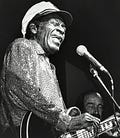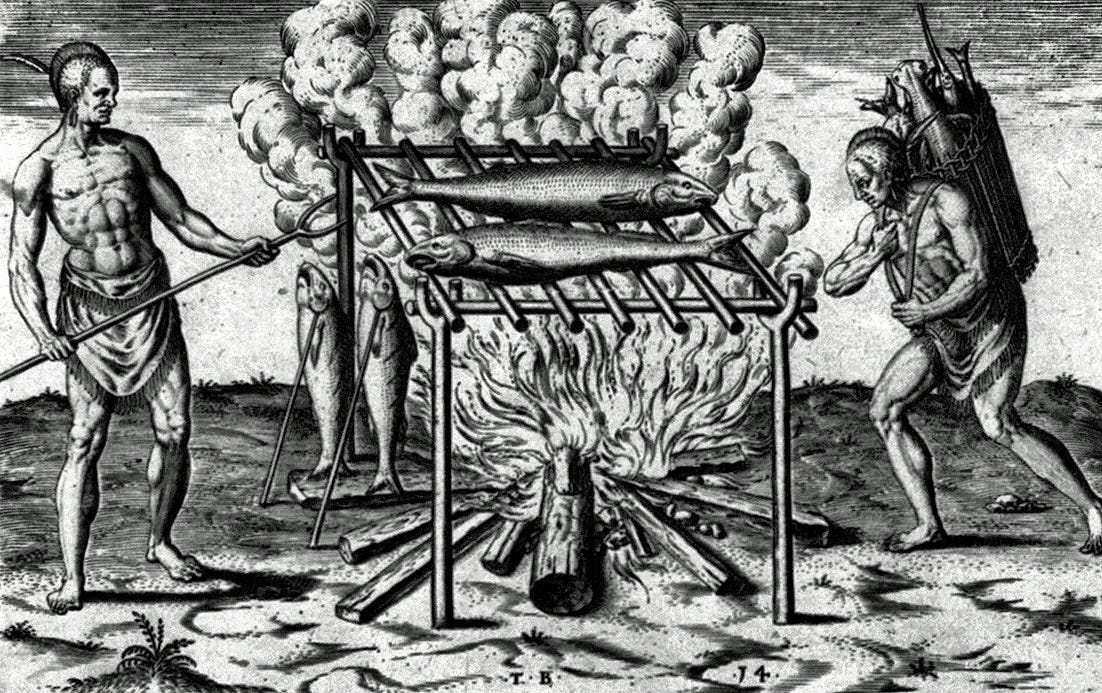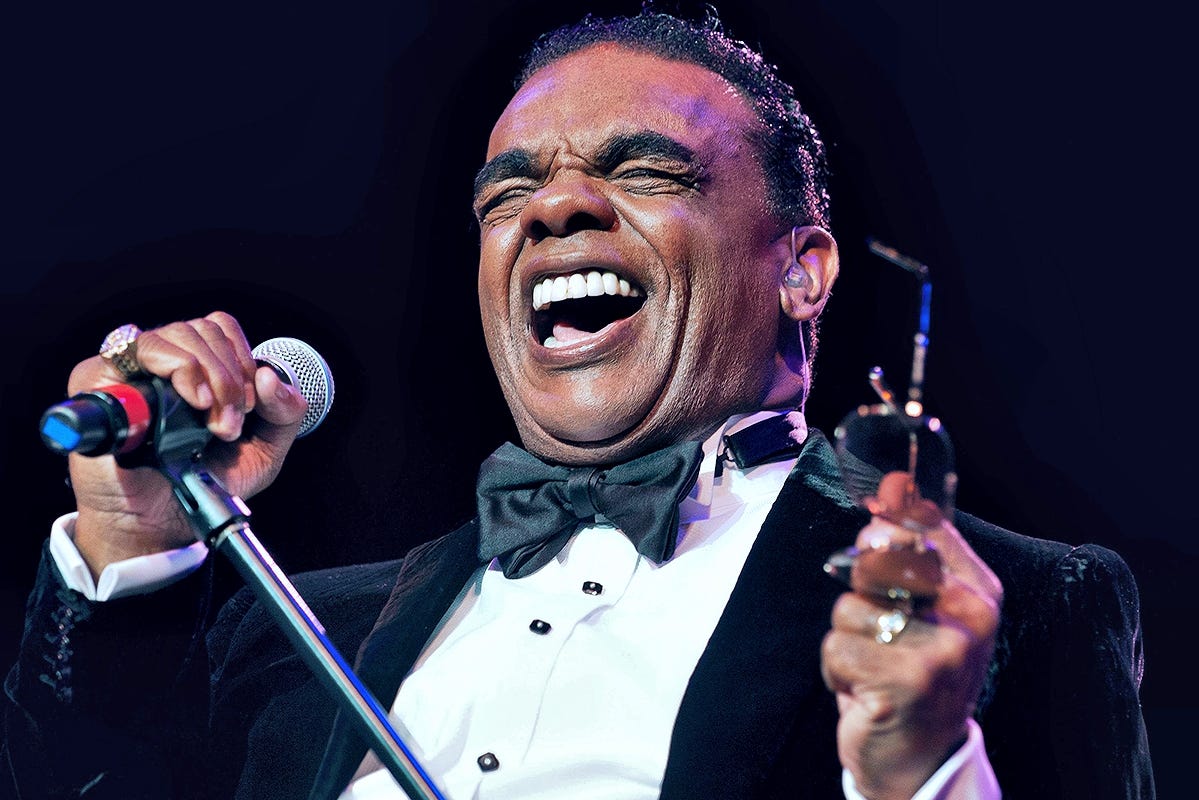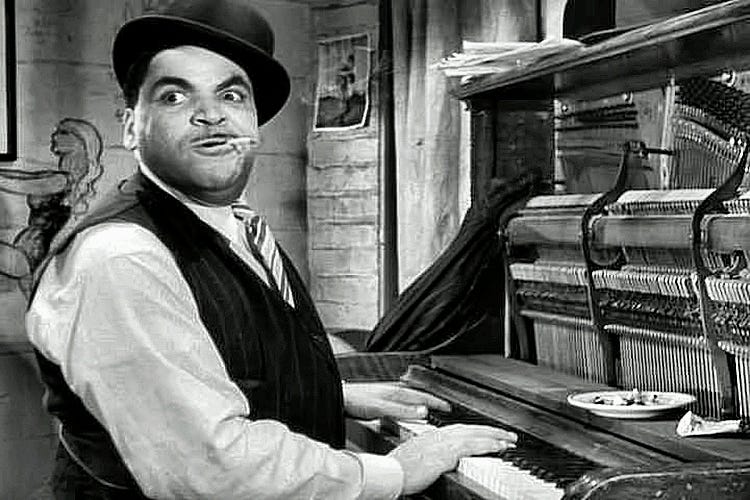On this day in 1955 — 67 years ago — Chuck Berry cut the record that would make him famous: Maybellene
Chuck Berry, New York City, June 16, 2006
Photo by Frank Beacham
John Lennon once famously said that "if you tried to give rock and roll another name, you might call it 'Chuck Berry.'"
That's how foundational Berry's contributions were to the music that changed America and the world beginning in the mid-1950s.
Even more than Elvis Presley, who was an incomparable performer, but of other people's songs, Chuck Berry created the do-it-yourself template that most rock-and-rollers still seek to follow.
If there can be said to be a single day on which his profound influence on the sound and style of rock and roll began, it was this day in 1955 — 68 years ago — when an unknown Chuck Berry paid his first visit to a recording studio and cut the record that would make him famous: "Maybellene."
Berry was a part-time professional musician in his native St. Louis and primarily a performer of the blues. But he was also an avid experimenter with other sounds.
On a visit to Chicago in May, 1955, Berry approached his idol, the great bluesman Muddy Waters, to ask for career advice. Waters pointed him in the direction of his record label, Chess Records, where Berry managed a face-to-face meeting with Leonard Chess and an invitation to return for an audition later that week.
When Berry returned, he hoped that Chess would sign him on the strength of one of his blues numbers, but it was a strange rhythm-and-blues/country-western hybrid called "Ida Red" that caught Chess's ear. Before it was recorded, "Ida Red' got new lyrics to go with a new title — "Maybellene" — but it retained the totally original sound that Berry had given it.
Berry returned to St. Louis unsure of what would come of his Chicago recording session. In the meantime, Leonard Chess made a business deal that was commonplace at the time, trading co-songwriting credit and a third of royalties to the prominent DJ — Alan Freed — in exchange for his help in promoting "Maybellene."
While audiences legitimately went wild over the backbeat-meets-hillbilly sound of "Maybellene," it surely did not hurt the record's chances of success to have Freed play the single for two hours straight during his WINS radio show in the early summer of 1955.
Chuck Berry had returned to his part-time job in construction and begun training to be a hairdresser when "Maybellene" hit the airwaves.
After "Maybellene" became a #1 R&B hit and a #5 pop hit — the first hit rock-and-roll single by a black performer — Berry set down his hammer and scissors in favor of his Gibson ES-350T and major place in American cultural history.
Here, Berry performs “Maybellene” in 1965.
Thanks History.com
Once upon a time, the Taino Indians of Jamaica got hungry, and they used the sweet wood of the allspice tree to cook meat over a slow fire. The wood they used was called barbacoa. That’s where the word barbecue comes from.
When Spaniards arrived in Jamaica in the 1490s, they enslaved the Indians and brought them to near extinction in about 50 years. African slaves were brought in to replace them.
In the 1650s, escaped slaves joined the remaining Taino in the forests and tried to fight the British and Spanish for control. The slaves learned how to preserve meat with spices because they didn’t know when their next meal might be. They shared with the Taino their method of smoking food in pits dug into the earth.
Barbecue has survived for more than 350 years from these humble origins.
Thanks New York Times!
Albert Grossman with Bob Dylan in London, 1966
Photo by Barry Feinstein
Albert Grossman was born 97 years ago today.
Grossman was the manager of many of the most popular and successful performers of folk and folk-rock music, including Bob Dylan, Janis Joplin, Peter, Paul and Mary, The Band and Odetta.
Grossman was born in Chicago, the son of Russian Jewish immigrants who worked as tailors. He attended Lane Technical High School and graduated from Roosevelt University in Chicago with a degree in economics.
After university, he worked for the Chicago Housing Authority — leaving in the late 1950s to go into the club business. Seeing folk star Bob Gibson perform at the Off Beat Room in 1956 prompted Grossman's idea of a “listening room” to showcase Gibson and other talent, as the folk revival movement grew. The result was the Gate of Horn in the basement of the Rice Hotel, where Jim (later Roger) McGuinn began his career as a 12-string guitarist.
Grossman moved into managing some of the acts who appeared at his club and in 1959, he joined forces with George Wein, who had founded the Newport Jazz Festival, to start up the Newport Folk Festival. At the first Newport Folk Festival, Grossman told New York Times critic Robert Shelton: "The American public is like Sleeping Beauty, waiting to be kissed awake by the prince of folk music."
Because Grossman was committed to commercial success for his clients, and was frequently surrounded by socialist enthusiasts of the American folk music revival, his manner could generate hostility. This is illustrated by this description of Grossman's presence in the Greenwich Village folk scene by Dylan biographer and critic Michael Gray:
"He was a pudgy man with derisive eyes, with a regular table at Gerde's Folk City from which he surveyed the scene in silence, and many people loathed him.
“In a milieu of New Left reformers and folkie idealists campaigning for a better world, Albert Grossman was a breadhead, seen to move serenely and with deadly purpose like a barracuda circling shoals of fish."
In 1961, Grossman put together Mary Travers, Noel Stookey and Peter Yarrow as the folk group Peter, Paul and Mary. They quickly achieved success when their eponymous first album entered the Billboard Top Ten in 1962.
The group had been avidly pursued by Atlantic Records, who were on the verge of signing them when the deal inexplicably fell through. The group signed with Warner Bros. Records instead.
Atlantic's executives later discovered that it was because music publisher Artie Mogull had introduced Grossman to Warner executive Herman Starr, from whom Grossman was able to extract an unprecedented deal that gave the trio complete creative control over the recording and packaging of their music.
Over the course of his career, Grossman's client list included Todd Rundgren, Odetta, Peter, Paul and Mary, John Lee Hooker, Ian and Sylvia, Phil Ochs (early in his career), Gordon Lightfoot, Richie Havens, The Pozo-Seco Singers, The Band, the Electric Flag, Jesse Winchester and Janis Joplin.
On August 20, 1962, Dylan signed a contract which made Grossman his manager. Grossman also extended hospitality to Dylan at his home in Woodstock in upstate New York. Dylan liked the area so much he purchased a house there in 1965.
The cover of Dylan's album, Bringing It All Back Home, was photographed at Grossman's home in Woodstock. The woman in the cover photo with Dylan, in the red trouser suit, was Grossman's wife, Sally.
Having returned to Woodstock at the end of his grueling 1966 World Tour, Dylan was reportedly on his way home from Grossman's house in West Saugerties when he suffered the legendary motorcycle accident that precipitated his eight-year withdrawal from touring.
When managing both Bob Dylan and Peter, Paul and Mary, Grossman brought the trio Dylan's song, "Blowin' in the Wind," which they promptly recorded (on a single take) and successfully released.
In his autobiography, Chronicles: Volume One, Dylan describes first encountering Grossman at the Gaslight cafe: "He looked like Sydney Greenstreet from the film, The Maltese Falcon, had an enormous presence, always dressed in a conventional suit and tie, and he sat at his corner table. Usually when he talked, his voice was loud like the booming of war drums. He didn't talk so much as growl."
When Bob Dylan was about to perform at the Isle of Wight Festival in August, 1969, English critic Michael Gray asked Grossman about the rumor that The Beatles might appear on-stage with Dylan. Grossman replied, sotto voce: "Of course, the Beatles would like to join Bob Dylan on stage. I should like to fly to the moon."
The contracts between Dylan and Grossman were officially dissolved on July 17, 1970, prompted by Dylan's earlier realization that Grossman had taken 50 percent of his song publishing rights in a hastily signed contract.
When Grossman signed Janis Joplin and her four bandmates from Big Brother and the Holding Company in 1967, he told them he would not tolerate any intravenous drug use, and all five agreed to abide by the rule. When he discovered, in the spring of 1969, that Joplin was injecting drugs anyway, he did not confront her.
Instead, in June, 1969, he took out a life insurance policy guaranteeing him $200,000 in the event she died in an accident. His yearly premium was $3,500.
On October 4, 1970, Grossman's most famous remaining client, Janis Joplin, died suddenly from a heroin overdose. Grossman refused to say a word about her death to any journalists or colleagues in the music business, leaving his employee, Myra Friedman, to handle the phone calls that flooded their office.
According to Joplin biographer Ellis Amburn, Grossman's "feelings about the loss of his most valuable client are not known." What is known is that in 1974, by which time his only living clients were the members of The Band, he kept busy with Joplin's legacy.
The San Francisco Associated Indemnity Corporation challenged him on his collection of $200,000 from his life insurance policy, which led to a bizarre civil trial in the spring of that year. The insurer tried to prove that the singer's death was a suicide, not an accidental overdose, as had been determined by Dr. Thomas Noguchi.
Grossman testified that he had never known the extent of Joplin's substance abuse when she was alive, and that he secured the accidental death policy "with air crashes in mind." He won the case and collected $112,000.
In 1974, he also assisted Howard Alk with the creation of the feature-length documentary, Janis, locating and using black and white film footage in which the singer says she is satisfied with Grossman as her manager.
In 1969, Grossman established the Bearsville Recording Studio near Woodstock, and in 1970 he founded Bearsville Records, which evolved from his brief partnership with the Ampex company to establish a record label of the same name.
Although that venture was short-lived — Todd Rundgren's debut solo album, Runt, was one of its few successful releases — this soon led to the establishment of Grossman's own Bearsville Records label, which was originally distributed through Ampex, and then by Warner Bros. Records.
As well as Rundgren's solo recordings and those of his band, Utopia, the label also recorded acts including Jesse Winchester, Foghat, Gil Evans, Paul Butterfield, Sparks, Felix Cavaliere, Randy Vanwarmer, Lazarus, Jesse Frederick, Roger Powell, NRBQ and The dB's.
Grossman died of a heart attack on January 25, 1986, while flying on the Concorde, at age 59. He was en route to London with a plan to sign an unknown British singer to a contract. He is buried behind his own Bearsville Theater near Woodstock, New York.
Grossman charged his clients 25 percent commission (industry standards were 15 percent). He is quoted as saying, "Every time you talk to me you're ten percent smarter than before. So I just add ten percent on to what all the dummies charge for nothing."
Marc Ribot, New York City, 2007
Photo by Frank Beacham
Marc Ribot is 68 years old today.
A guitarist and composer, Ribot’s work has touched on many styles, including no wave, free jazz, rock and Cuban music.
Born in Newark, Ribot has worked extensively as a session guitarist, performing and recording with Tom Waits, John Zorn, David Sylvian, Jack McDuff, Wilson Pickett, The Lounge Lizards, Arto Lindsay, T-Bone Burnett, Medeski, Martin and Wood, Cibo Matto, Elysian Fields, Sam Phillips, Elvis Costello, David Poe, Allen Ginsberg, Foetus and Robert Plant and Alison Krauss.
Add to that Susana Baca, The Black Keys, Stan Ridgway, Vinicio Capossela, Alain Bashung, Lyenn, Hector Zazou, McCoy Tyner, Elton John, Madeline Peyroux, Marianne Faithfull, Leonid Fedorov, Tonio K, Andres Calamaro, Anarchist Republic of Bzzz, Diana Krall and Mike Patton.
Ribot's earliest session work was featured on Tom Waits' Rain Dogs (1985) and helped define Waits' new musical direction. Ribot worked with Waits on many of his following albums including Franks Wild Years (1987), Big Time (1988), Mule Variations (1999), Real Gone (2004), Orphans (2006) and Bad as Me (2011). He has appeared on Elvis Costello's Spike, Mighty Like a Rose (1991) and Kojak Variety (1995).
Ribot appeared on numerous recordings by John Zorn, including many of Zorn's Filmworks recordings, solo performances on Zorn's Masada Guitars (also featuring Bill Frisell and Tim Sparks) and is a member of Zorn's Bar Kokhba Sextet and Electric Masada.
Ribot's first two albums featured The Rootless Cosmopolitans, followed by an album of works by Frantz Casseus for solo guitar. Further releases found him working in a variety of band and solo contexts including two albums with his self-described "dance band," Marc Ribot y Los Cubanos Postizos (The Prosthetic Cubans), featuring compositions by Arsenio Rodríguez.
Ribot admitted to Guitar Player a relatively limited technical facility due to learning to play right-handed despite being left-handed: "That's a real limit, one that caused me a lot of grief when I was working with Jack McDuff and realizing I wasn't following in George Benson's footsteps. I couldn't be a straight-ahead jazz contender if you held a gun to my head, but that begs the question of whether I would want to be one."
He currently performs and records with his group, Marc Ribot's Ceramic Dog, with bassist, Shahzad Ismaily, and drummer, Ches Smith, of the avant-garde band, Secret Chiefs 3.
A biographical documentary film about Marc Ribot was made, called The Lost String.
Here, Ribot and Ceramic Dog perform “Masters of the Internet”
Robert Creeley, 1972
Photo by Elsa Dorfman
Robert Creeley, poet, was born 98 years ago.
Creeley wrote more than sixty books. He is usually associated with the Black Mountain poets, though his verse aesthetic diverged from that school's. He was close with Charles Olson, Robert Duncan, Allen Ginsberg, John Wieners and Ed Dorn.
Creeley served as the Samuel P. Capen Professor of Poetry and the Humanities at State University of New York at Buffalo. In 1991, he joined colleagues Susan Howe, Charles Bernstein, Raymond Federman, Robert Bertholf and Dennis Tedlock in founding the Poetics Program at Buffalo.
Creeley lived in Waldoboro, Maine; Buffalo, New York; and Providence, Rhode Island, where he taught at Brown University. He was a recipient of the Lannan Foundation Lifetime Achievement Award.
Creeley died at sunrise on March 30, 2005 in Odessa, Texas of complications from pneumonia.
Ron Isley is 82 years old today.
A recording artist, songwriter, record producer and occasional actor, Isley was the lead singer and founding member of the Isley Brothers.
Ronald Isley was born the third of six brothers (O'Kelly Isley, Jr., Rudolph Isley, Ronald, Vernon Isley, Ernie Isley, Marvin Isley) to Sallye Bernice (Bell) and O'Kelly Isley, Sr. Like many of his siblings, Isley began his career in the church. He began singing at the age of three, winning a $25 war bond for singing at a spiritual contest at the Union Baptist Church.
By the age of seven, he was singing on-stage at venues such as the Regal Theater in Chicago, alongside Dinah Washington and other notables. By his early teens, he was singing regularly with his brothers in church tours and also first appeared on TV on Ted Mack's Amateur Hour.
In 1957, sixteen-year-old Ronald and his two elder brothers, Kelly, 19, and, Rudy, 18, moved to New York City, recording doo-wop for local labels before landing a major deal with RCA Records in 1959, where the trio wrote and released their anthemic, "Shout."
By the summer of 1959, the Isley family had moved from Cincinnati to a home in Englewood, New Jersey. For much of the Isley Brothers' duration, Ron Isley would remain the group's consistent member of the group as well as the lead vocalist for most of the group's tenure with sporadic lead shares with his older brothers.
In 1969, Ron and his brothers reformed T-Neck Records in a need to produce themselves without the control of record labels, forming the label shortly after ending a brief tenure with Motown.
In 1973, the group's style and sound drastically changed following the release of the 3 + 3 album, where brothers Ernie Isley and Marvin Isley and in-law Chris Jasper permanently enter the brothers' lineup, writing the music and lyrics to the group's new sound.
The younger brothers had been providing instrumental help for the brothers since the late 1960s. By the mid-1970s, Ronald was living in Teaneck, New Jersey.
After Kelly Isley's death in 1986 and Rudy Isley's exit to fulfill a dream of ministry in 1989, Ronald has carried on with the Isley Brothers name either as a solo artist or with accompanying help from the group's younger brothers, much more prominently, Ernie Isley.
In 1990, Isley scored a Top 10 duet with Rod Stewart with a cover of his brothers' hit, "This Old Heart of Mine (Is Weak for You)."
In 2003, Ronald recorded a solo album, Here I Am: Bacharach Meets Isley, with Burt Bacharach. In addition, he became a sought-after hook singer for R&B veteran R. Kelly, and hip-hop acts such as Warren G., 2Pac and UGK.
Ronald released his first solo album, Mr. I, on November 30, 2010. The album includes the first single "No More." It debuted at #50 on the Billboard 200, selling 22,243 copies. It was his first solo album to crack that chart. In 2013, Ronald released his second solo album with eOne. The album includes the first single, "Dinner and A Movie."
Isley was charged with and convicted of tax evasion charges. The Hollywood Reporter reports Isley was sentenced to 37 months in prison, instead of the maximum sentence, which would have sent Isley to jail for 26 years.
Isley's sentence was affirmed by the United States Court of Appeals for the Ninth Circuit. He was imprisoned at the Federal Correctional Institution at Terre Haute, Indiana, and was released in 2010.
Here, Isley performs “No More”
Fats Waller was born 119 years ago today.
Born as Thomas Wright Waller, Fats was a jazz pianist, organist, composer, singer and comedic entertainer. He was the youngest of four children born to Adeline Locket Waller and Reverend Edward Martin Waller. He started playing the piano when he was six and graduated to the organ of his father's church four years later.
At 14, Waller was playing the organ at Harlem's Lincoln Theater. Within a year, he had composed his first rag. His first piano solos, "Muscle Shoals Blues" and "Birmingham Blues," were recorded in October, 1922 when he was 18 years old.
Waller was the prize pupil — and later friend and colleague — of stride pianist, James P. Johnson. Overcoming opposition from his clergyman father, Waller became a professional pianist at 15, working in cabarets and theaters. In 1918, he won a talent contest playing Johnson's "Carolina Shout," a song he learned from watching a player piano perform it.
Waller was one of the most popular performers of his era, finding critical and commercial success in his homeland and in Europe. He was also a prolific songwriter and many songs he wrote or co-wrote are still popular, such as "Honeysuckle Rose," "Ain't Misbehavin'" and "Squeeze Me."
Fellow pianist and composer, Oscar Levant, dubbed Waller "the black Horowitz." Waller composed many novelty tunes in the 1920s and 1930s and sold them for relatively small sums. When the compositions became hits, other songwriters claimed them as their own. Many standards are alternatively and sometimes controversially attributed to Waller.
Waller's son, Maurice, wrote in his 1977 biography of his father, that once he was playing "I Can't Give You Anything but Love, Baby” his father complained. Waller admonished his son never to play that song in his hearing, saying that he had to sell that song when he needed some money.
He even made a recording of it in 1938 with Adelaide Hall who, coincidentally, had introduced the song to the world (at Les Ambassadeurs Club in New York in 1928), in which he played the tune but made fun of the lyrics. Likewise, Maurice noted his father's objections whenever he heard "On the Sunny Side of the Street" played on the radio.
The anonymous sleeve notes on the 1960 RCA (UK) album, Handful of Keys, state that Waller copyrighted over 400 new songs, many of which co-written with Andy Razaf, his closest collaborator. Razaf described his partner as "the soul of melody...a man who made the piano sing...both big in body and in mind...known for his generosity...a bubbling bundle of joy.“
Gene Sedric, a clarinetist who played with Waller on some of his 1930s recordings, is quoted in these same sleeve notes recalling Waller's recording technique with considerable admiration: "Fats was the most relaxed man I ever saw in a studio, and so he made everybody else relaxed. After a balance had been taken, we'd just need one take to make a side, unless it was a kind of difficult number."
His playing once put him at risk of injury. Waller was kidnapped in Chicago leaving a performance in 1926. Four men bundled him into a car and took him to the Hawthorne Inn, owned by Al Capone. Waller was ordered inside the building, and found a party in full swing. Gun to his back, he was pushed towards a piano and told to play.
A terrified Waller realized he was the "surprise guest" at Capone's birthday party, and took comfort that the gangsters did not intend to kill him. According to rumor, Waller played for three days. When he left the Hawthorne Inn, he was very drunk, extremely tired and had earned thousands of dollars in cash from Capone and other party-goers as tips.
In 1926, Waller began his recording association with Victor Records, his principal record company for the rest of his life, with the organ solos "St. Louis Blues" and his own composition, "Lenox Avenue Blues."
Although he recorded with various groups, including Morris's Hot Babes (1927), Fats Waller's Buddies (1929) (one of the earliest interracial groups to record) and McKinney's Cotton Pickers (1929), his most important contribution to the Harlem stride piano tradition was a series of solo recordings of his own compositions: "Handful of Keys," "Smashing Thirds," "Numb Fumblin'" and "Valentine Stomp" (1929).
Waller contracted pneumonia and died at age 39 on a cross country train trip near Kansas City on December 15, 1943, after making a final recording session with an interracial group in Detroit that included white trumpeter Don Hirleman.
He was on his way back to Hollywood for more film work, after the smash success of "Stormy Weather." Coincidentally, as the train with the body of Waller stopped in Kansas City, so stopped a train with his dear friend Louis Armstrong on board.
Here, Waller performs “Honeysuckle Rose”









